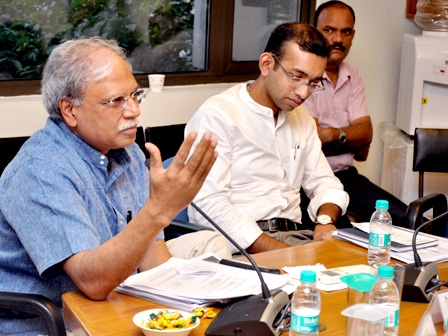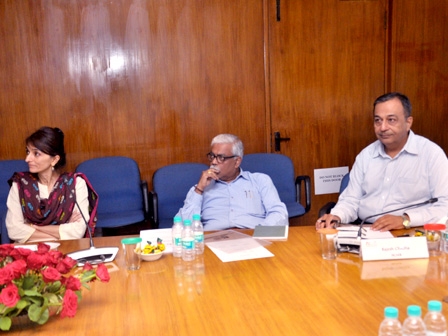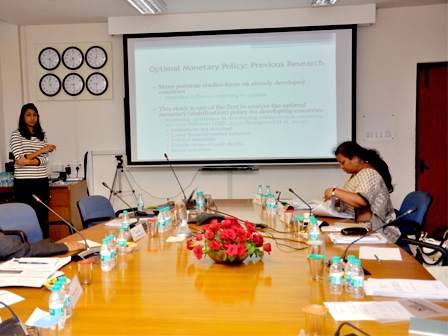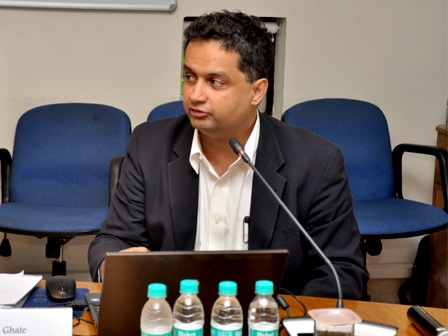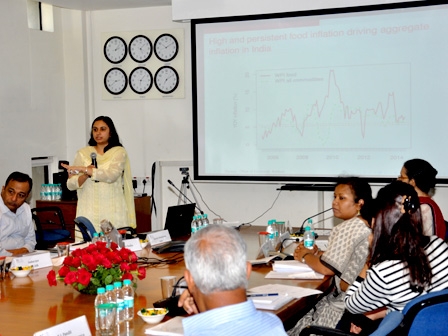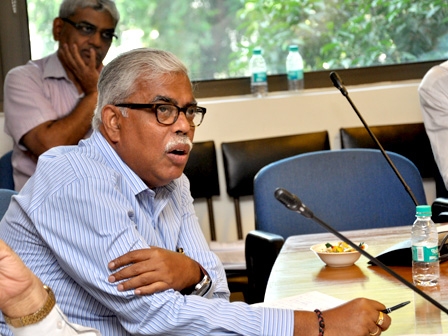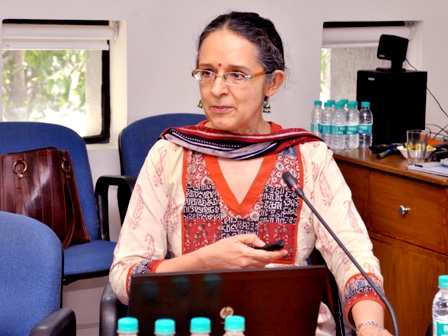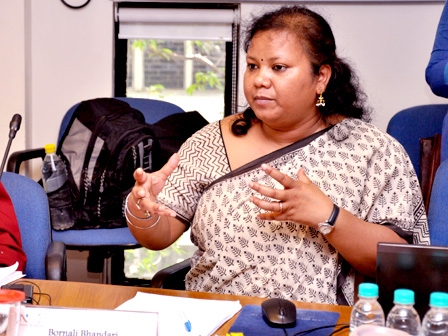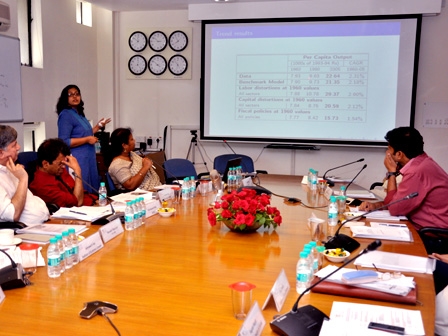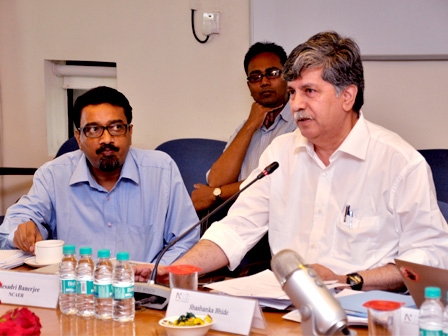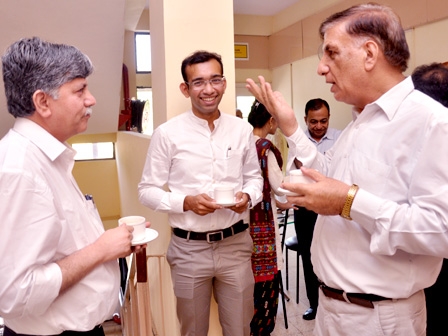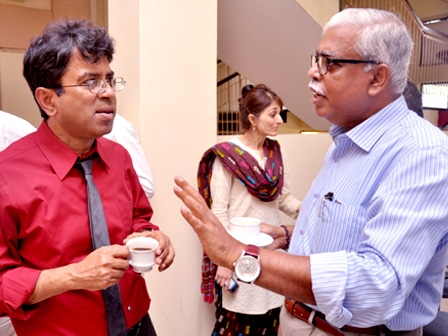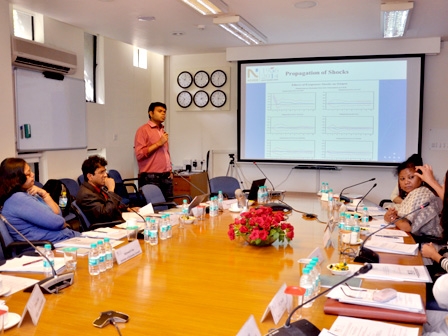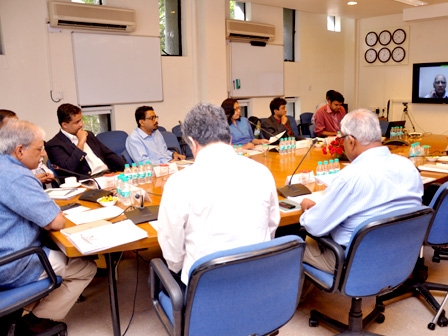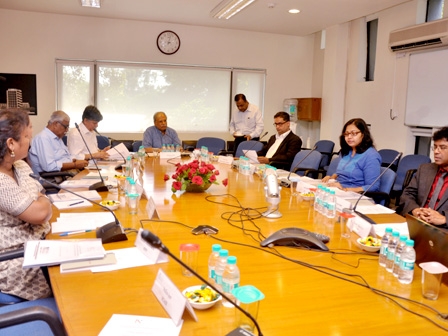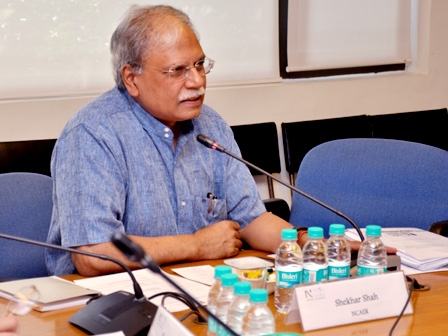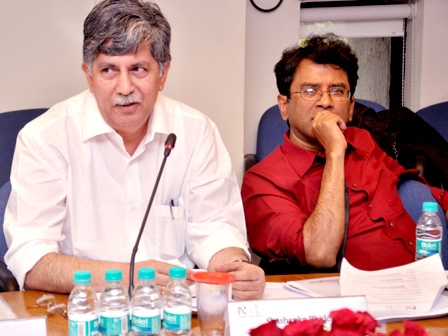Dynamic Stochastic General Equilibrium Modelling for Emerging Markets and Developing Economies
22 Sep 2014
Past Event
Over the last decade, the Dynamic Stochastic General Equilibrium (DSGE) framework has become a workhorse for macroeconomic analysis in both academic and policy circles. Following this emerging trend, we aim to modernise our research capacity in macroeconomics at NCAER by introducing a baseline DSGE model for the Indian economy. This new generation model can serve as an analytical toolbox for studying business cycles, examining the effects of actual and hypothetical fiscal and monetary policy shifts, and projecting the likely course of macroeconomic events under various short to medium-term scenarios. NCAER recently received a short-term grant from IDRC, Canada, to launch this work, which is being led by Dr. Shesadri Banerjee.
Under the aegis of this grant, a research workshop was organised on DSGE modelling for the Emerging and Developing economies. NCAER hosted both national and international experts in this arena. It started off with keynote speech by Professor T. N. Shrinivasan and followed by the presentation of Professor Parantap Basu, Professor at Durham University, UK giving us background and evolution of DSGE modelling the work. Dr Banerjee and Professor Basu presented the preliminary DSGE model for India. Dr Sohini Sahu of IIT Kanpur used a DSGE model to analyse the transition of India from an agricultural led to a service led economy with labour market distortions serving as severe impediment to economic growth. Professor Ashima Goyal used the DSGE framework to analyse the monetary policy in a small open economy with dual labour markets. Dr Rudrani Bhattacharya of NIPFP examined food price inflation in the DSGE framework and Ms Tara Iyer, PhD student at Oxford University analysed the impact of financial inclusion on monetary policy. Professor Chetan Ghate of ISI, Delhi examined the choice between public and private human capital expenditure and its impact on growth and inequality, depending on how public human capital expenditure is financed. Overall, the research activities in the workshop emphasised the need of modern instruments for macroeconomic modelling in India to answer various policy relevant questions.







